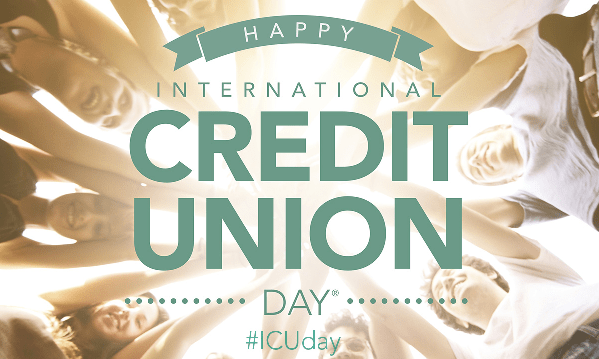Majority of Americans Resolve for Financial Well-being in 2018
Below is great information from NEFE, the National Endowment for Financial Education. Mid Oregon believes that NEFE is an organization which provides quality financial information. From time to time they share content on tips and resources to those interested in improving their financial well being. Occasionally we will post information we believe will be helpful to our members and the Central Oregon community. We hope you find “Majority of Americans Resolve for Financial Well-being in 2018” useful.
Nearly 7 in 10 Will Set Goals to Improve Finances
NEFE, January 4, 2018
The latest issue of an annual survey on consumer expectations from the National Endowment for Financial Education (NEFE) finds over two thirds (69 percent) of U.S. adults will set a financial New Year’s resolution for 2018, a consistent indication that many Americans continue to focus on their financial health as much as their physical health.
This year’s survey also finds that the majority of U.S. adults (53 percent) feel the current quality of their financial life is about what they expect it to be, with 18 percent saying it is better than expected. Regretfully nearly one in three (29 percent) rate the current quality of their financial life worse than they expect it to be. The survey was conducted online in December 2017 by Harris Poll on behalf of NEFE, among more than 2,100 U.S. adults.
Finances Causing Americans Stress
“We continue to see a lot of anxiety about money. Three quarters of Americans (76 percent) say something causes them financial stress. It’s the usual suspects of not saving enough and debt that they say is to blame,” says Ted Beck, president and CEO of NEFE. “Financial setbacks add to the distress. Almost two thirds (63 percent) experienced an unexpected expense in 2017. We have to change our mindset. We must realize that these expenses are not if they will happen, but when they will happen. An emergency savings, even a modest amount as a starting point, can alleviate uneasiness.”
The most common financial setback in 2017 seen in the results of the NEFE survey are transportation issues (23 percent). Next are housing repairs/maintenance (20 percent), and the inability to keep up with debt/falling behind on bill payments (16 percent). Additionally, the survey finds the top anticipated expense in 2018 among U.S. adults will be paying off debt (40 percent). Close behind are home improvement and maintenance (33 percent), and transportation-related expenses (32 percent).
Tips for Financial Success in 2018
Get debt under control. Take a hard, honest look at what you owe. Set a goal to reduce your debt load in 2018 by 5-10 percent. That might mean reducing impulse shopping. When you face temptation, delay the purchase and give yourself time to consider whether it’s a wise move that fits within your budget.
Save now and do so often. Preparing for unexpected events like medical emergencies can help reduce the financial impact of a life-changing event. Emergency savings can offset unexpected costs and help you get back on solid footing. A good rule of thumb is to have six to nine months of income set aside. That may seem out of reach so start with a smaller goal—even as little as $500. When it comes to saving, it’s also a smart idea to think long term. Review your long-term savings and ensure they are on target for your retirement plans.
Shop for better services. You may be surprised by how much you can save when you periodically shop for the most competitive rates on your recurring bills. Make a game out of shopping providers to find the best value on your insurance policies, cell phone plan, internet and utilities. Ask your providers about current rates and any promotions available to long-time, loyal customers. Then look at alternative providers to determine where you can trim some spending. Be sure to understand your current offering thoroughly so that you are comparing apples to apples.
Understand what’s behind your financial decisions. If you ever wonder why you feel good about spending money on vacations but avoid saving for retirement, the answer may lie in your unique values and how they influence your financial decision-making. Consider taking the LifeValues Quiz on smartaboutmoney.org to help understand how you spend your money.
About the Survey and NEFE
For help getting finances in order in 2018, visit www.smartaboutmoney.org.
Survey Methodology
Harris Poll® fielded the study on behalf of the National Endowment for Financial Education from December 7-11, 2017, via its Harris On Demand online omnibus service, interviewing 2,165 U.S. adults aged 18+. Data were weighted using propensity score weighting to be representative of the total U.S. adult population on the basis of region, age within gender, education, household income, race/ethnicity, and propensity to be online. No estimates of theoretical sampling error can be calculated; a full methodology is available on www.nefe.org.
About the National Endowment for Financial Education
NEFE is an independent nonprofit organization committed to educating Americans about personal finance and empowering them to make positive and sound decisions to reach financial goals. For more information, visit www.nefe.org.





